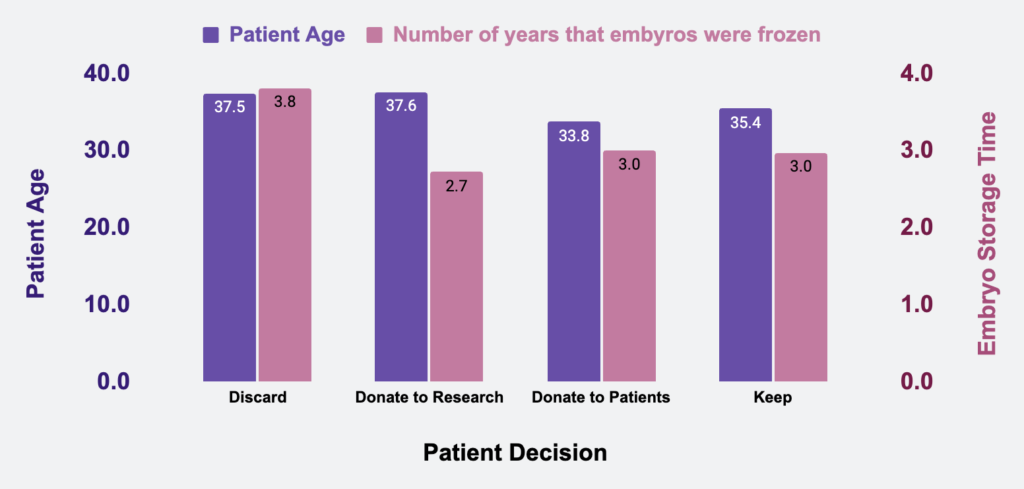About us & our product
ImVitro’s SaaS platform EMBRYOLY is an AI-powered software. EMBRYOLY’s core feature provides a ranking based on the embryo’s morphokinetics as well as a subsequent transfer priority recommendation personalized to the patient for increased accuracy. See our product page for more information!
The challenge
In many cases, patients are left with embryos to freeze following their fertilization, either because no embryo was meant to be transferred fresh (i.e. this corresponded to a freeze-all protocol) or because there were additional viable embryos to keep for future transfers in case the fresh transfer would not lead to a pregnancy, or in case the patient might consider having several children through IVF. Once embryos are frozen, the law generally requires that patients are consulted yearly as to what they intend to do with them. Typically, this is accomplished through postal communication, which can be time-consuming and energy-intensive for the IVF clinic to manage, as patients may not always respond promptly or may neglect to update their residential address with the IVF center. This means many clinics end up struggling to keep up with this administrative burden, often requiring embryologists to also participate in this administrative task.
Questions to answer
- Can EMBRYOLY CRYO facilitate the management of frozen embryo consents?
The study at a glance
96.3%±0.36%
emails delivered succesfully
82.5%±6.6%
of patients created their account on EMBRYOLY
30%±14%
of patients had signed within 1 month
The study at a glance
96.3%±0.36%
emails delivered succesfully
82.5%±6.6%
of patients created their account on EMBRYOLY
30%±14%
of patients had signed within 1 month
Dataset
Findings
Only 3.7% of the emails were not delivered because of an issue with the email address on record. 9.9% of cycles could not be processed by EMBRYOLY because of missing information (e.g. email address and phone number of one of the patients).
82.5%±6.6% of patients who received the email created their account on EMBRYOLY. Within one month, 30%±14.3% of all patients had signed their consent and 25%±8.1% consents had been completed by both the patient and the partner. Interestingly, those who did not initiate the process were on average one year younger (33.2±0.2y/o) than those who did (34.4±0.4y/o).
Out of those who had initiated their choice within 1 month, 82.69%±3.2% had decided to keep their frozen embryos vs. 6.73%±1.54% to discard and 10.58%±2.2% to donate (of which 9.62% ±3.0% to research, and 0.96±1.3% to other patients). On average, embryos had been frozen for 3.1±1.7 years. Unsurprisingly, the ones frozen the longest were often those that patients decided to discard - see the graph below.

10% of patients contacted the ImVitro team directly to get help completing their signature.
Conclusion at a glance
EMBRYOLY can help your center send and follow up with your frozen embryo reminders to help embryologists and associated team members focus on other essential tasks. Our results show that patients do manage to make their decision via EMBRYOLY autonomously and in a secure way. By digitalizing the entire process, EMBRYOLY provides IVF centers with traceability and transparency regarding the progress of each patient. Additionally, it enables the regular reminder of patients who have not yet signed to the IVF center, thereby enhancing the patient’s response rate over time at no extra cost.
